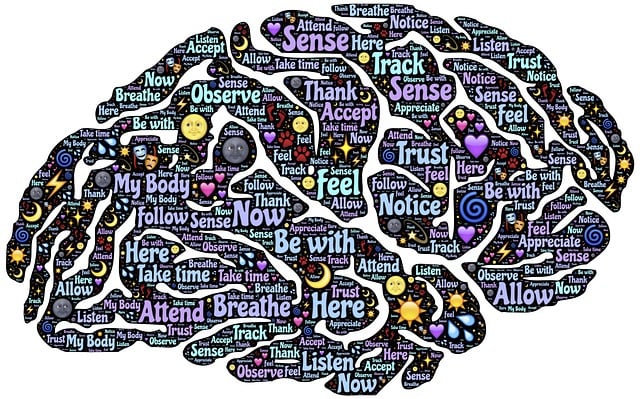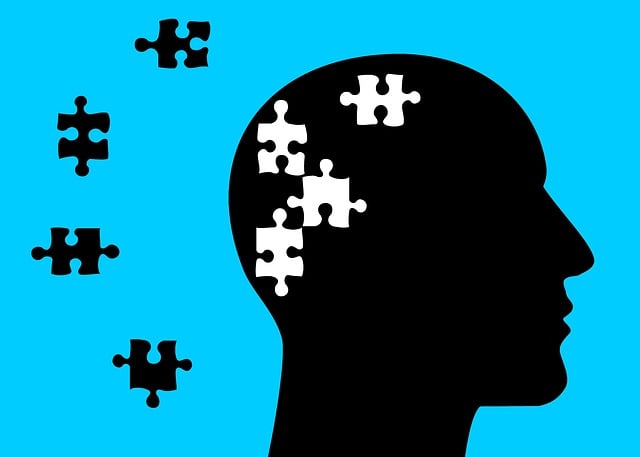Boulder Chronic Illness Therapy emphasizes the holistic nature of mental wellness, addressing emotional challenges associated with chronic illnesses. Through personalized coaching programs, individuals learn resilience and adaptive mindsets to manage their conditions effectively. These programs incorporate self-awareness exercises, goal setting, and self-care practices tailored to diverse needs. By integrating evidence-based practices and fostering an inclusive community environment, coaches support clients' emotional healing and overall mental wellness. Strategic planning, continuous evaluation using both quantitative and qualitative methods, ensures the program's success in meeting varied client needs within mental healthcare.
Mental wellness coaching programs have emerged as powerful tools in supporting individuals living with chronic illnesses. This article explores the significance of mental wellness and its profound impact on managing chronic conditions. We delve into the transformative role of coaching, highlighting how it empowers people to navigate their health journeys. Specifically, we focus on designing effective Boulder-based therapy programs tailored for mental wellness coaching. Additionally, implementation strategies, evaluation methods, and continuous improvement techniques are discussed to enhance these life-changing interventions.
- Understanding Mental Wellness and Its Impact on Chronic Illnesses
- The Role of Coaching in Supporting Individuals with Chronic Conditions
- Designing Effective Boulder-Based Therapy Programs for Mental Wellness Coaching
- Implementation, Evaluation, and Continuous Improvement Strategies
Understanding Mental Wellness and Its Impact on Chronic Illnesses

Mental wellness is a holistic concept encompassing emotional, psychological, and social well-being. It influences how individuals cope with stress, make choices, and interact with their surroundings, especially during challenging times. In the context of chronic illnesses, mental wellness plays a pivotal role in managing symptoms and enhancing overall health outcomes. Many people living with chronic conditions, such as those seeking Boulder Chronic Illness Therapy, often face profound emotional challenges due to the physical demands and lifestyle adjustments required for management.
Understanding mental wellness is crucial for developing effective coaching programs. Self-awareness exercises and practices designed to foster resilience can empower individuals to navigate their mental health journeys. The integration of mental wellness into public awareness campaigns and the production of informative Mental Wellness Podcast Series can further support those facing chronic illnesses, promoting proactive self-care and improved quality of life.
The Role of Coaching in Supporting Individuals with Chronic Conditions

Coaching plays a pivotal role in supporting individuals living with chronic conditions, offering a unique and effective approach to enhancing mental wellness. In the context of Boulder Chronic Illness Therapy, coaching provides a safe space for clients to navigate the challenges associated with their health. Through personalized sessions, coaches help individuals build resilience, fostering an adaptive mindset that empowers them to manage their conditions effectively. This process involves exploring coping strategies, setting achievable goals, and developing self-care practices tailored to each person’s needs.
Moreover, coaching equips participants with valuable tools for risk management planning, enabling them to anticipate and mitigate potential mental health crises. By integrating conflict resolution techniques into the coaching framework, professionals can assist clients in managing stress, improving communication, and fostering supportive relationships, all of which contribute to a more balanced and resilient state. These strategies are essential in promoting long-term mental wellness, especially for those facing chronic illnesses.
Designing Effective Boulder-Based Therapy Programs for Mental Wellness Coaching

In designing effective mental wellness coaching programs with a focus on Boulder Chronic Illness Therapy, healthcare providers must consider tailoring interventions to meet diverse client needs. This involves integrating evidence-based practices and incorporating aspects like social skills training and cultural competency training. By fostering an inclusive environment, coaches can facilitate emotional healing processes, addressing the unique challenges faced by individuals navigating chronic illness in a supportive setting.
Boulder’s vibrant community offers a rich landscape for such programs, allowing for group therapy sessions that encourage connection and peer support. Coaching strategies should emphasize building resilience, enhancing coping mechanisms, and promoting self-care practices. Incorporating activities that nurture mindfulness and stress reduction techniques can significantly contribute to the overall wellness of clients managing chronic conditions.
Implementation, Evaluation, and Continuous Improvement Strategies

The development of a robust mental wellness coaching program involves strategic implementation and ongoing evaluation to ensure its effectiveness. One key aspect is integrating best practices, such as those promoted by Boulder Chronic Illness Therapy, into the coaching framework. This includes tailoring sessions to individual needs, fostering open communication, and encouraging self-care routine development for better mental health. Regular assessment of client progress enables coaches to make data-driven adjustments, enhancing the program’s impact.
Evaluation methods should encompass both quantitative and qualitative techniques. Tracking key performance indicators (KPIs) related to Mental Health Awareness can provide insights into the program’s reach and effectiveness. Client feedback forms, focus groups, and interviews also facilitate understanding of their experiences and suggestions for improvement. By embracing these strategies, mental wellness coaching programs can cultivate a dynamic, responsive, and culturally sensitive practice—a critical component in addressing diverse client needs, as underscored by the importance of Cultural Sensitivity in Mental Healthcare Practice.
Mental wellness coaching programs, particularly those grounded in Boulder chronic illness therapy, have proven to be transformative tools in supporting individuals managing chronic conditions. By combining understanding mental wellness’ impact on physical health with the power of coaching, these programs offer a holistic approach to well-being. Effective design, implementation, and continuous evaluation ensure that such initiatives not only meet but exceed expectations, fostering significant improvements in participants’ mental resilience and overall quality of life.













